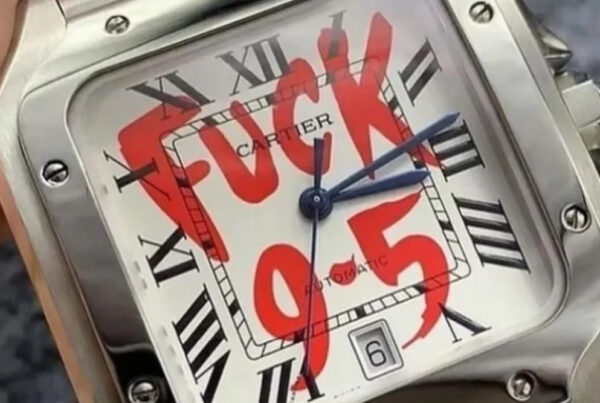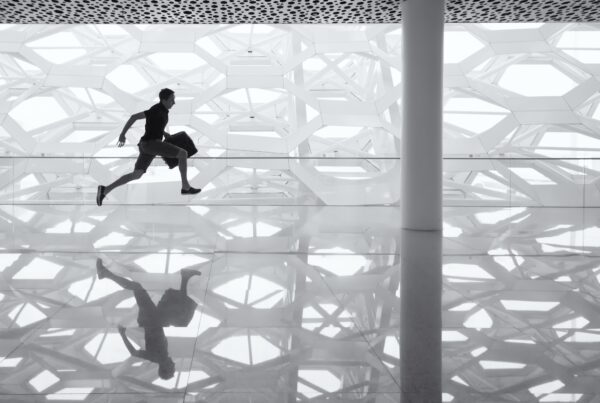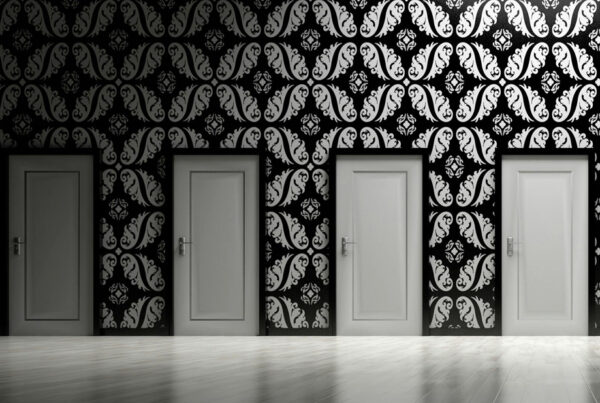Here are fascinating nuances to optimising your imagination.
I love what philosopher and author Irwin Raphael McManus said on a podcast, “What makes humans different from every other species and what humans can do that no other species can do, is materialize the invisible. Humans actually create out of their imagination. In the same way that ants create colonies, and bees create hives, and beavers create dams… humans create futures.”
We create communities, capitalism, customs, companies, cars, comedies, commodities, conversations, care facilities… Creative industries like cinema, music, advertising, technology… Science… Medicine… And, of course, romantic ideals like love affairs. We write sci-fi books that resemble the way we live today… We are incredible animals.
In the book Magic Minds, neurosurgeon, neuroscientist, entrepreneur, and philanthropist James R Doty MD, shares how our brains do not differentiate between imagination and actual events, what you experience in reality and those you experience in your imagination. The more vivid you can paint the mental picture, the brain will respond as if it is already lived, your intention becoming reality. The Subconscious allocates resources to seeking it out in reality. Creativity meets Manifestation!
The antithesis of creativity is not a lack of imagination. Nor dullness, blandness or boredom. The antithesis of creativity is fear. Often in business, fear of competition arises. While competition can inspire us to be better, think Olympic, comparison can lead to distraction from our own true north, purpose, and potential. Competition can build a scarcity mindset. Rather than embracing creativity from possibility or abundance, we start looking at others, comparing ourselves, using competitors as a stepping stone, limiting our potential, inhibiting our one giant leap forward.
Take Apple, for example. They revolutionised smartphones, tablets, etc. They reinvented entire categories and, arguably, lifestyles when they created these products. Why? Perhaps they focused on creating, not competing. It’s almost always those who are focused on creating that are imitated by others who are trying to compete.
In the olden days, if someone had to win, someone else had to lose. In 2024, there are unlimited markets and technology to invent new markets and new futures. Fiat currency versus Bitcoin. Life on mars!
“Humans create futures.”
Irwin Raphael McManus
Imagine you are an artist. You put 100% focus into your canvas. Your focus is your craft, your work, bettering yourself, and creating to the best of your ability. You are focused on creating rather than competing. Paul Gardner said, “A painting is never finished – it simply stops in interesting places.” That’s it!
Reflecting on this, one of the elements that made our agencies great was not thinking about what other people or companies were doing. We rarely read trade publications, entered awards, or even knew what others in our industry were doing unless my staff told me, verbally or via a website link. I found that distracting. (As Compadres grows, I have to discipline myself to stay off LinkedIn).
We spent our time looking at macro trends outside of our industry and meeting lots of interesting people. Meeting interesting people gives us ideas and builds relationships. Ideas create futures, and relationships have the potential to create collaborations.
To paraphrase Dan Sulivan, from Who Not How: The success of your life can be measured by the number of quality collaborations you have going on at any one time…
So as we look to collaborate and create, we are no longer coming from a scarcity mindset, which is a competitive mindset. We are looking at what’s possible. That is our natural state, imagining infinite possibility, creating new futures, as Mother Nature intended.
Peter Thiel, a co-founder of PayPal, Palantir Technologies, and Founders Fund, he was the first outside investor in Facebook, said “Competition is for losers.” I think he was meaning utilise yourself, and your imagination at full capacity. Be the original. The message contradicts the competitive atmosphere of business. He argues that no competition represents the ideal business model, that founders and entrepreneurs should always aim for a monopoly, and to avoid competition.
We are naturally super-powered imaginators (see, created a new word), be the creator.
#wearecompadres #goalsmadereal



